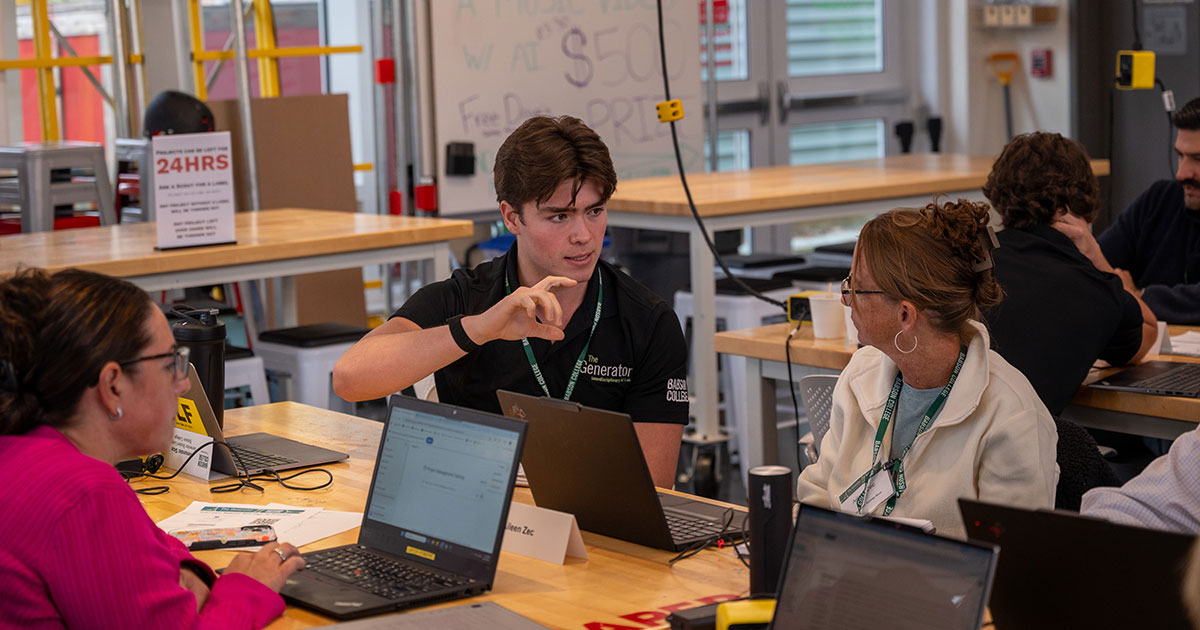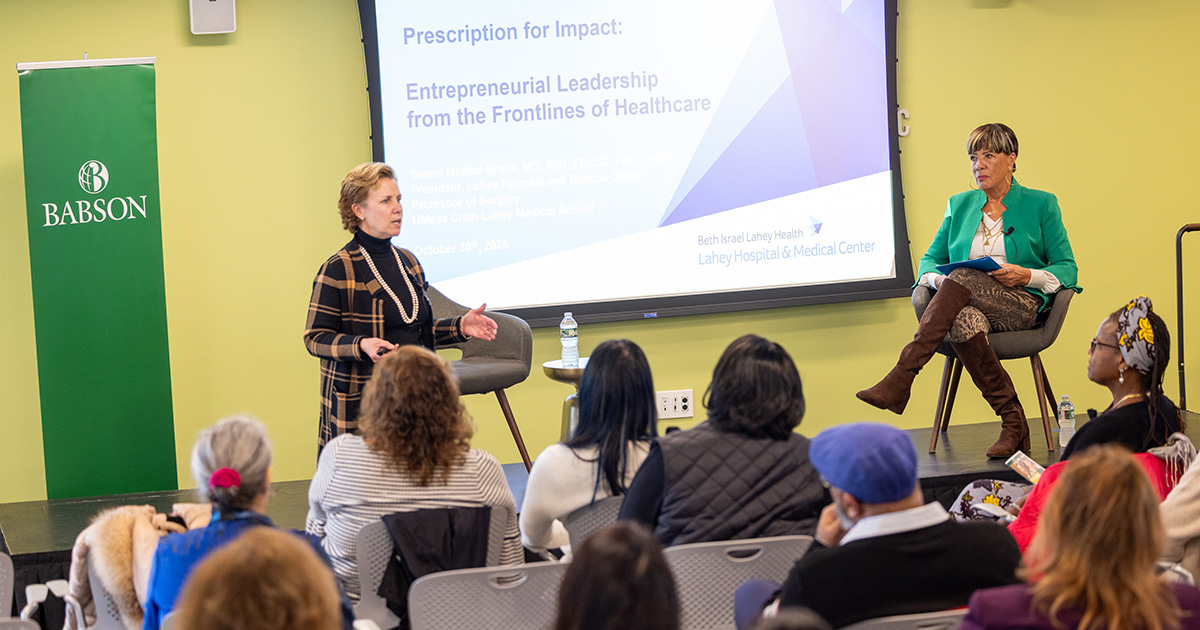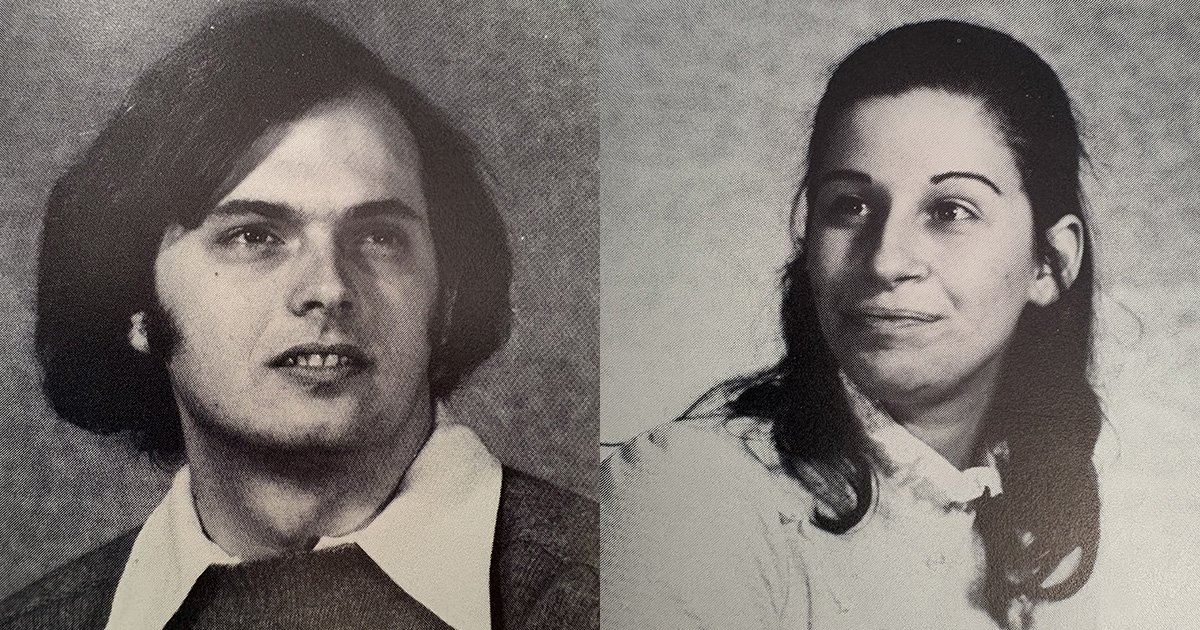No Matter Which Side of the Relationship You’re On, Mentorship Matters

As a budding tech entrepreneur, Diana Yuan ’15 identified a challenge early on in her career. She had trouble finding a mentor whom she strongly identified with.
The problem: a lack of more senior women in her field who could mentor her. Without that person, it became difficult for Yuan to visualize her own future success.
Today Yuan, co-founder of Indico, a successful tech startup that will soon begin raising an additional round of funding, is an expert mentor and mentee. As a student, she took advantage of some of Babson’s signature mentoring programs, including the Coaching for Leadership and Teamwork Program (CLTP) and Women Innovating Now (WIN) Lab®. Today, she continues to mentor early-stage entrepreneurs in the WIN Lab®. “I didn’t have a lot of women to look up to in the technology space because they just weren’t visible,” she says. “Now I mentor and speak as often as I can because I want other women to look at me and say, ‘If she can do it, I can too.’”
Mentors like Yuan provide coaching and guidance, and can even be champions during an entrepreneur’s journey. Mentorship increases the likelihood a business will open and stay open, and working with a mentor for five or more hours increases an entrepreneur’s likelihood of success.
So how do you go about finding, or being, a mentor? And how do you maintain a good working relationship once the mentorship is established? Here, Yuan shares her expertise.
How to Find a Mentor
Finding a mentor isn’t just about finding an expert in your field. It’s about building and nurturing a relationship with someone who becomes invested in seeing you achieve your goals. Don’t expect to walk up to a person and ask if he or she will mentor you. Put the time and effort into developing a relationship. If the fit is right, it will organically turn into mentorship.
During Yuan’s time in Babson’s CLTP program, she met with two mentors. Although both gave her important feedback and advice, she recalled having a much more positive experience with the second one. The difference? They liked spending time together and had more in common. According to Yuan, these two things—likeability and commonality—became an important base for their successful mentor-mentee relationship.
Likeability is vital, but it shouldn’t hinder a mentor’s ability to give straightforward feedback. The difference in opinion and perspective can help a mentee make the best decisions long term. During her junior year, Yuan’s CLTP mentor offered advice that pushed Yuan to move into her current startup. That advice? “You’re young. If you’re going to take a risk and start a company, now is the time to take those big risks.”
How to Be a Mentor
The first few years of startup life can be lonely, Yuan says. That early struggle is one of the reasons she found becoming a WIN Lab mentor so fulfilling. “I so strongly identify with what these early-stage entrepreneurs are going through. And sometimes the thing they need most is someone to hear what they’re experiencing and validate that they’re not in it alone,” she said. “It can have immense impact. At the same time, I leave our meetings feeling energized and inspired. Hearing what they’re working on and how they’re trying to change the world makes me that much more excited about my own work.”
But being a mentor is also a big responsibility. To her, mentors serve the vital role of being a sounding board, a guide, and a champion while they simultaneously push back to help their mentees see the bigger picture.
What does it take to be a good mentor? First, make sure you have the time. Yuan likes to make sure she has at least three hours available to her mentee each week. Second, set expectations around the commitment, how often you’re going to communicate, and through what channels. Third, be honest if your mentees are not adhering to those expectations. If too much time is being taken, let them know. Fourth, honor the mentee’s agenda. This is their journey. Although your advice matters, they need to feel supported and pave their own path. Finally, celebrate their wins. Yuan knows how difficult it was to take time to celebrate what she accomplished in the early days. Her mentors always served a valuable role in stopping to take a moment and celebrate all that she was able to achieve.
Yuan attributes much of her success to the advice that she has gleaned from her mentors, in addition to the enthusiasm and fulfillment that she experiences by being a mentor herself. No matter where you are in your career, seek out those whom you can learn from and teach while investing in the relationships that matter most.
How to Navigate the Mentor/Mentee Relationship
Yuan touts the importance of staying humble and always putting yourself in a position to be a student. No one has all of the answers. The more information shared between mentor and mentee, the easier it is to figure out where to go next.
Learning from the mistakes of those who came before you is a big part of that knowledge transfer. It gives the mentee insight into previous strategies that were proven ineffective, providing an opportunity to avoid already encountered pitfalls and reach his or her goals more quickly.
The learning that takes place in successful mentor relationships is one of the many reasons that Yuan feels so strongly about being mentored and also being a mentor. “Every time I am mentored, I reach out to mentor someone else because I think it creates a really important chain reaction,” said Yuan. “It’s impossible to know everything and to learn everything on your own. We all have to learn from one another’s mistakes.”
Posted in Entrepreneurial Leadership, Insights





